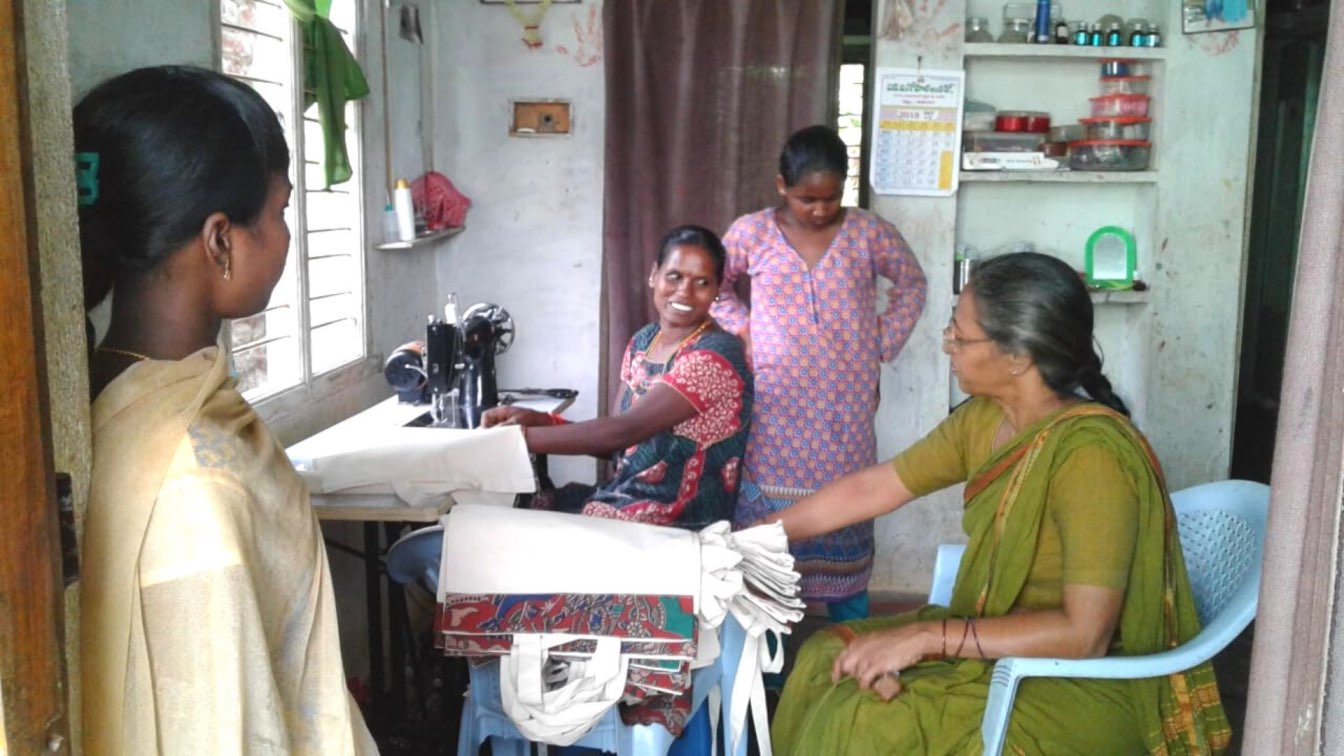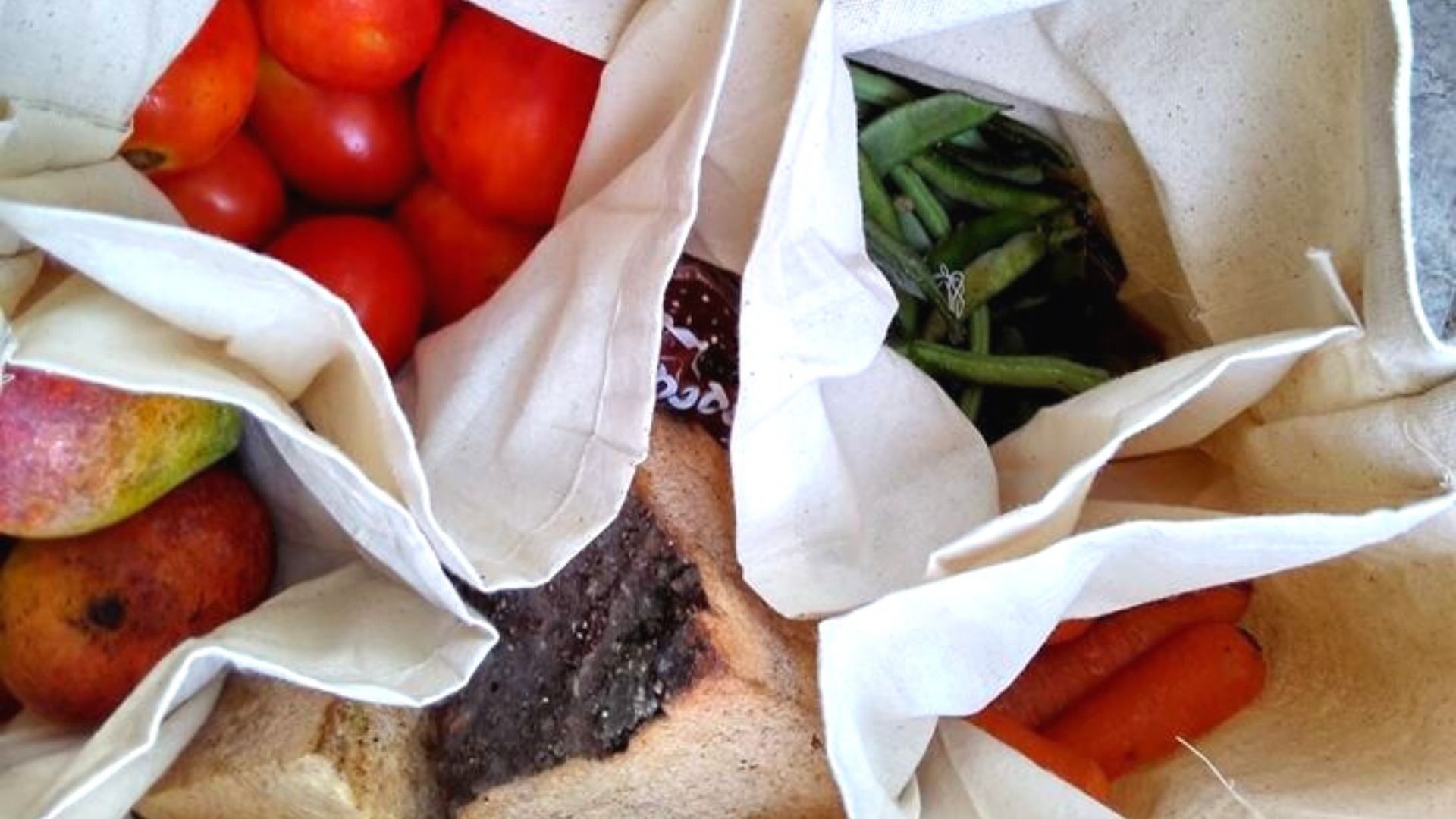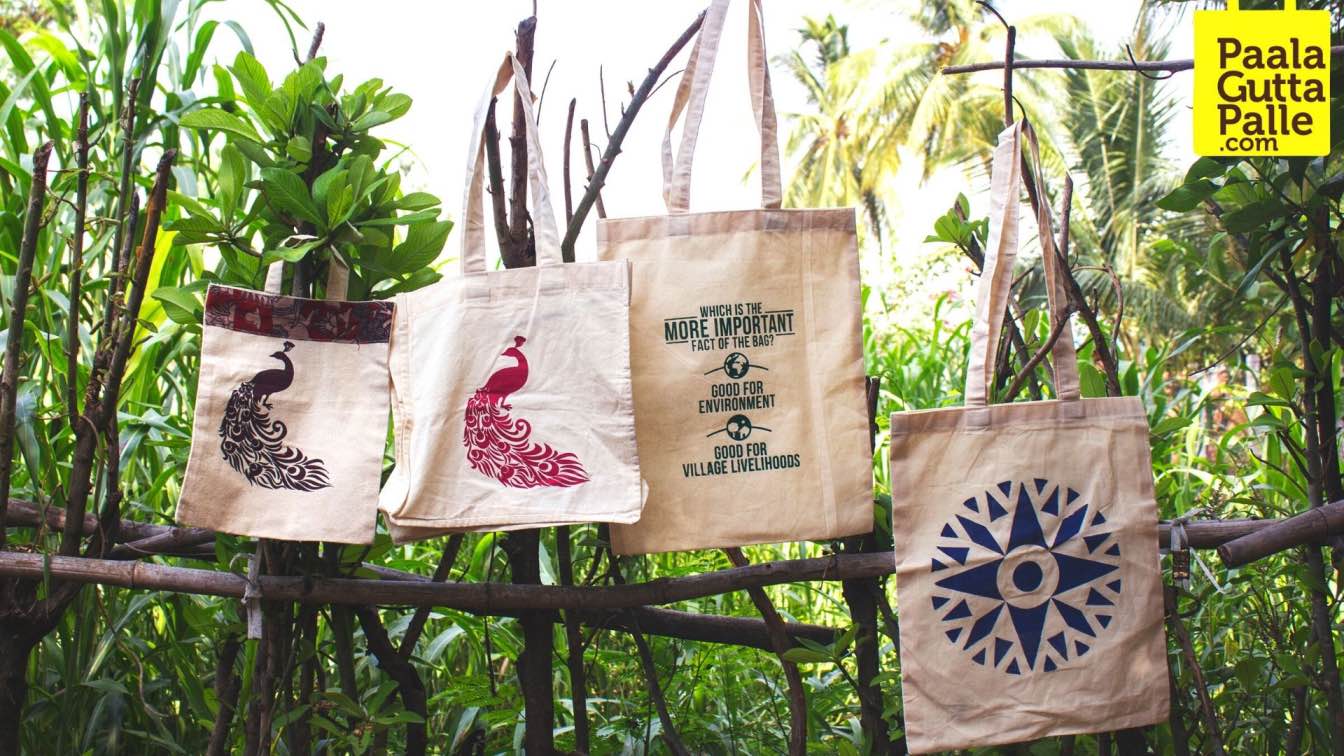Between 2010 and 2015, villagers of Paalaguttapalle, a small village in the Chittoor district of Andhra Pradesh, were suffering heavily due to drought. As agriculture activity stood still for five long years, the 60-odd families in the village started selling their cattle and migrating outside in search of non-agriculture income. Some men found it difficult to find jobs as labourers.
Aparna Krishnan, a native of the village, was closely observing the conditions of the resident members.
A software engineer by profession, Aparna moved to Paalaguttapelle in 1995, and was well acquainted with the villagers. She began holding discussions with them about finding a solution to their woes, and learned that apart from farming, the only skill the women in the area possessed was stitching.
Aparna suggested to four women that they start making eco-friendly and pure cotton cloth bags. In 2016, the women began stitching the bags, while Aparna promoted them on social media. Today, around 50,000 bags have been sold to customers across India, as well as in countries such as the USA, UK and Canada. The business, run by ten women, has helped the village sail through the difficult times and lead self-sufficient lives.
“The men in the village are hard-working, but how will they survive if there is no work available for them? Their lands turned fallow, and the sole breadwinner of the family became helpless. It was inevitable for the women to step in,” says Aparna.
A stitch in time

Aparna gave the women a total of Rs 500 to start Paalaguttapelle Bags. Initially, she sold the bags to people in her network. In 2017, a big order of 1,300 bags came in for an event, World Organic Congress, in Uttar Pradesh. To cater to the heavy demand, more women joined.
Aparna says that since then, thousands of bags have been delivered to customers across India and abroad. “The women cater to corporate demands and accept bulk orders. They make around 50 types of cloth bags, including laptop sleeves, sling bags, backpacks, drawstring bags, and tote bags, and even customise them according to demand,” she adds.
The most popular bag is the vegetable bag, which came as a suggestion from a customer. “The customer shared a design of the bag with the women, and they slowly learned how to stitch it. The bag has compartments that help avoid mixing of the vegetables, and saves the hassle of having to segregate them at home. It remains the most popular, and is sold out on most days,” she says.
Aparna says some buyers also came in with requests for customised prints and designs. “These women underwent training in screen printing from Chennai. Such requests from customers have helped their skills evolve, and bring in varieties of bags over time,” she adds.

The venture earns the women around Rs 5,000 a month, or more if they bag a big order. The amount has helped them provide quality education for their children.
Roopa (31), one of the women working with the venture, says, “The situation was terrible then, as I could not even afford one meal. Only the bags made my family’s survival possible. With decent income, I can provide education to my children in private schools.”
Anita (37) has a similar tale to tell. “My financial condition has improved, and I can now provide adequate nutrition for my family. Earlier, we could afford meat only once a month, but now, we have the luxury to buy it every week,” she says.
Anita says her husband takes care of house chores while she is busy. “Men in the village feel happy when they hear the bags have travelled far beyond the area, and that our work is appreciated,” she adds.
More help needed

However, all is not well for these women. “Erratic electricity supply in the village makes work hours shorter. Connectivity with urban areas is poor, and getting a broken sewing machine repaired takes days,” Aparna explains.
Aparna says with no budget at her disposal, social media posts on Facebook and Instagram are the only means of marketing. “I have no stake in their business and push the marketing to overcome their language barrier to deal with customers. Many corporates get bags stitched from these women. But we still need more orders for more to be employed and upscale income,” she adds.
During the COVID-19 pandemic, the women sold homemade pickles and 10,000 masks. “We received a fresh order from abroad for making quilts. The women are busy working on meeting the new demand,” Aparna says and adds that she is hopeful that this will add a boost to their sales.
To order Paalaguttapalle bags, click here or call +91 93815 98081.
Edited by Divya Sethu
No comments:
Post a Comment